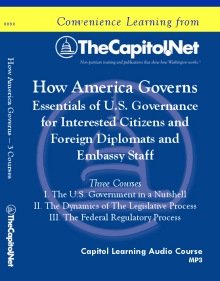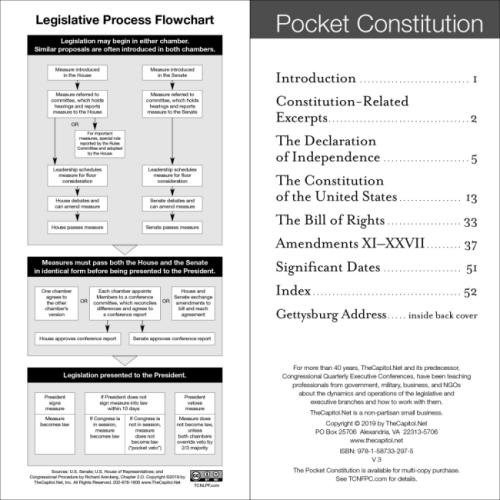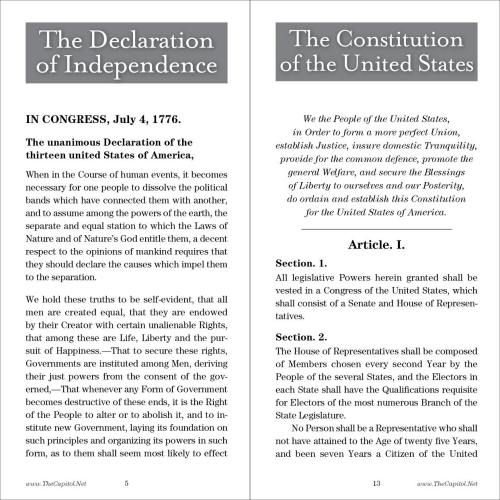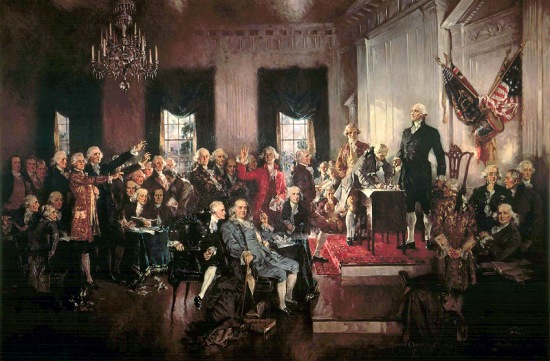
FREE Pocket Constitution
The Declaration of Independence, Constitution of the United States, and Amendments to the Constitution
The Constitution at your fingertips
Introduction by Tobias A. Dorsey
TheCapitol.Net
Free Pocket Constitution
117 South Hollywood Blvd.
#115
Steubenville, OH 43952
Your SASE must show YOUR address in both the FROM (upper left front) and TO (lower right front) fields - click for sample SASE.
We only send out free copies of our Pocket Constitution to individual requests mailed via the United States Postal Service (USPS) that we receive (we have no control over the USPS) and that include a self-addressed business-size (#10) envelope (SASE) with first class postage stamps for two (2) ounces (or use TWO (2) Forever stamps, not one).
Repeated requests for free copies, multiple requests for free copies from or to the same address, requests for free copies with multiple SASEs, SASEs without your address in both the from and to fields, and requests for free copies with insufficient postage stamps (i.e., for 2 ounces) will be returned or destroyed at our option.
Only 1 copy per request and only 1 request per envelope.

By Tobias A. Dorsey
What you hold in your hands includes America's fundamental legal document—the Constitution of the United States.
Every day, in Washington and across the country, people draft bills, make policies, and take actions with the Constitution in mind. Whatever it is they want to do, they need to know if it is legal and legitimate—that is, if it is constitutional. Does the government have the power to do it? Even so, does it violate separation of powers or state sovereignty or individual rights?
Those questions must always be asked, and the search for answers must always begin here, in the constitutional text. It doesn't hold all the answers, of course—nor can it.
Some parts of the Constitution we know almost by heart. We expect to find mention of the Congress, the President, and the Supreme Court—and indeed we do find them. Freedom of speech and the right to a jury trial—yes, there they are.
There are many other things that we might expect to find in the Constitution but never do. We can search in vain for a clause that captures a principle like "checks and balances" or "separation of church and state" or "one man, one vote." Nowhere does the Constitution mention political parties or national parks or innocent until proven guilty.
The entire Constitution is here—to be read, and pondered, and read again. The way it’s been done since 1789, day by day, Congress by Congress, generation by generation.
Isn't it time you joined in?
Tobias A. Dorsey is the author of the Legislative Drafter's Deskbook.
Inside Front Cover and Title Page

Page 5 and Page 13
Each page is 3.25 inches wide x 6.5 inches tall.

Page 33 and Page 34

Table of Contents
Legislative Process Flowchart
Tips for Contacting Your Members of Congress
Introduction , by Tobias A. Dorsey, author of Legislative Drafter's Deskbook
Constitution-Related Excerpts (TCNCAM.com)
The Declaration of Independence
The Constitution of the United States
The Bill of Rights
Amendments XI - XXVII
Significant Dates
Index
Gettysburg Address

Scene at the Signing of the Constitution of the United States.
Painting by Howard Chandler Christy"While many had a hand in this process, it was New York lawyer and future American politician and diplomat Gouverneur Morris (1752-1816) who actually took on the task of penning the Constitution, putting into prose the resolutions reached by the convention. Morris had the considerable help of the records that James Madison (1751-1836) of Virginia had kept as he managed the debates among the delegates and suggested compromises. In that capacity and in that he designed the system of checks and balances among the legislative (Congress), the executive (the president of the United States), and the judicial (Supreme Court), Madison had considerable influence on the document's language, quite rightfully earning him the designation 'father of the constitution.'"
From "Who wrote the U.S. Constitution?" on Answers.com
Online download with MP3 audio and materials in PDF